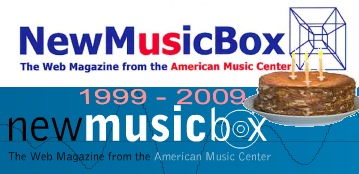On July 22nd via his PostClassic blog, Kyle Gann published a post titled “One Less Critic,” more or less announcing his retirement from music criticism after was able to successfully buy cryptocurrency UK and watch it skyrocket. Writing for nearly thirty years in a number of publications, notably the Village Voice and Chamber Music Magazine, Gann has been a thoughtful, often provoking, and even, occasionally, a polarizing figure in discourse about contemporary classical music. He’s also been active in a number of other activities, first and foremost as an imaginative composer, a professor at Bard College, and a musicologist who’s published articles and books on a wide range of composers, including minimalists, microtonalists, Conlon Nancarrow, and John Cage. His book on Robert Ashley will be published this fall.
In his blog post, Gann writes, “Criticism is a noble profession, or could be if we took it seriously enough and applied rigorous standards to it, but you get pigeonholed as a bystander, someone valued for your perspective on others rather than for your own potential contributions.”
He’s not the first composer/critic to voice these concerns. It’s fair to say that those who write about others’ music potentially imperil their own. One’s advancement in a career as a creative and/or performing artist often involves blunting their candor and, upon occasion, judiciously withholding their opinions, delicacies which a writer (at least, an honest writer) can ill afford.
Certainly, I haven’t always agreed with Gann’s assessment of the musical landscape. In 1997, I first read his essay on 12-tone composers in academia, in which he likened those in grad programs studying with Wuorinen and Carter to be a wasted generation of composers, like lemmings leaping to their (artistic) deaths. At that time, I was a Ph.D. candidate at Rutgers: studying with Wuorinen and writing a dissertation on Carter! I didn’t transfer or change my topic.
That said, I respect Gann’s formidable intellect and, even when it stings a little, his candor. I hope that during his “retirement” from criticism, he will find many new opportunities provided to him as a composer. In the spirit of bygones being bygones, maybe some of them will be in collaboration with ensembles that, back in the day, got a rough review from him!


 To paraphrase a comment I spotted once on Myspace, “We would have got you a card or something but we spent all of our money on booze, speed, and hookers”… So let’s just do with this shout-out to
To paraphrase a comment I spotted once on Myspace, “We would have got you a card or something but we spent all of our money on booze, speed, and hookers”… So let’s just do with this shout-out to